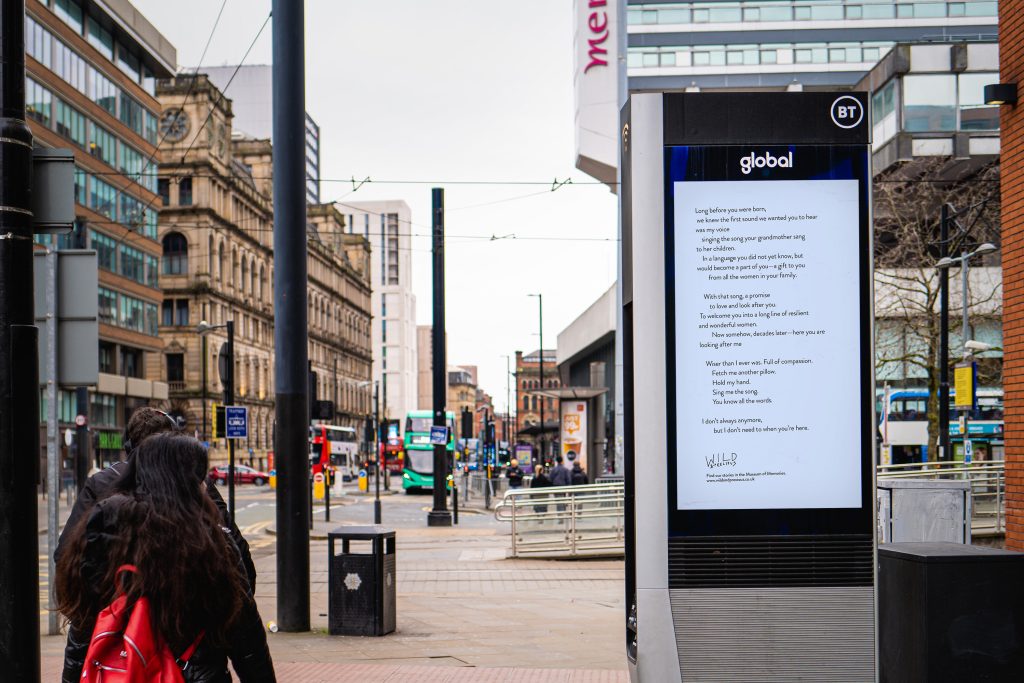The UK Dementia Research Institute (UK DRI) today takes its Museum of Memories from the Metaverse into the real world with a thought-provoking OOH campaign to raise awareness of dementia’s impact on women.

A series of OOH sites in urban shopping areas across London, Birmingham, Manchester and Leicester display the powerful, poetic, movingly written memories of women suffering from dementia, each one describing the often fleeting moments that go to make up the fabric of life.
The ‘Wild & Precious’ posters by WongDoody have been created to raise awareness and teach a generation of women how to spot and talk about dementia – the leading cause of death for UK women*. Women also account for two thirds of unpaid dementia carers.
Grace Francis, Global Chief Creative and Design Officer at WongDoody said: “Our participants opened up to help us capture life in all of its complexity–the wild, the serene, the mundane and the profound. We’re so proud to share their memories through an OOH campaign that will give people a reason to stop and think about what it really means to be alive, and to take on board the impact dementia can have on that life.”
UK DRI is a charity committed to learning from people with lived experience of dementia to raise awareness, build understanding and champion further research for dementia’s impact on women.
The idea is in part inspired by the work of American poet Mary Oliver, whose poem The Summer Day helped shape the campaign’s emotional pitch. “Tell me, what is it you plan to do / with your one wild and precious life?” is the poem’s final line.

WongDoody’s creative solution also combines the personal stories with creative technologies to celebrate life within a digital museum space, accessible on a dedicated web site.
It does this by preserving the most cherished memories of contributors – volunteers sourced via UK DRI, other charity organisations and outreach to share their memories – who each have a dedicated room in the museum where their story is brought to life using motion design in a series of 4D sequences.
A short-form documentary series from award-winning director Liz Unna also explores a selection of memories from women with early on-set dementia.
In the UK, two in three people with dementia (65%*) are women – a disparity due to a gender gap in medical research (due to fewer women than men being included in medical trials) rather than women’s long average life expectancy.


The gap in medical research is further widened when it comes to people of colour due to the health system inequalities in diagnosis, care and support they face – a situation that impacts black and South Asian women in particular*.
Further, women are also more likely to care for a loved one with condition. Around two thirds* of unpaid carers are women, leading to additional financial and emotional strain on many.
As a result of the huge and varied impact the illness causes to the lives of those with the condition and their family and friends, 55%* of women agree that dementia is the health condition they fear most.
Source: WongDoody

You must be logged in to post a comment Login